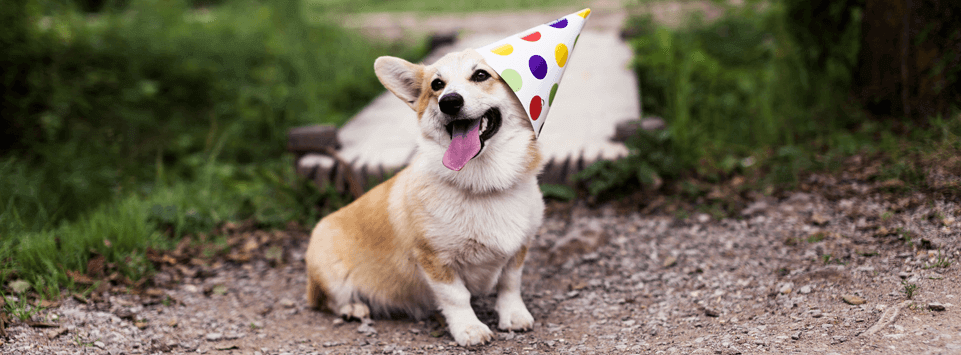Corgi Fun Facts
This article is written by Pet Circle veterinarian,
Corgis are a popular, well-loved breed. After springing to fame thanks to the British Royal Family's affinity for them, Corgis have become a common and much-loved dog breed in households worldwide.
To celebrate the Queen's birthday holiday weekend, we've made a little quiz about all things Corgi. Think you know Corgis? Take our quiz to find out just how well you really know this royal breed! (Hint - the info needed for the quiz can also be found below!)
Powered by tryinteract.com
We've also compiled a list of fun corgi facts - some royal, and some not-so-royal. Enjoy! (hint - these will really help you with the Quiz!)
1. There are actually two different breeds of Corgi

That's right - the Cardigan Welsh Corgi and the Pembroke Welsh Corgi are two completely separate breeds. The often bob-tailed Pembroke Welsh is the more recognisable of the two, shooting to popularity thanks to the royal family's affection for them. The Cardigan Corgi has a more brindle, sable or merle coat, and is slightly larger with a brush tail. The two breeds weren't recognised as separate breeds until 1934.
2. Queen Elizabeth has bred her own line of Corgis since the 1950s.

Famous for being an avid corgi fan, Queen Elizabeth has owned over 30 corgis in her lifetime and is still regarded as one of the top corgi breeders in the world. Purebred puppies from the Queen's line were registered under the affix of Windsor.
3. The Queen's corgi line all share an ancestral line to her first 'foundation bitch', Susan.

One of the first royal corgis, known as 'Susan' is the common ancestor of all the Queen's corgis - all 14 generations of them! The Queen is reportedly the only breeder to have still bred from the foundation bitch, which is a remarkable feat in the dog breeding world.
4. The royal corgis are fed by Queen Elizabeth herself

The Queen feeds her own corgis herself, and they are fed in order of seniority. Their food is home cooked and often contains homeopathic or herbal remedies. It is brought in by a butler and served on silver or porcelain dishes by the Queen.
In fact, it is reported that one time Her Majesty discovered her dogs' meals had been frozen and reheated, rather than cooked fresh. Extremely cross, Elizabeth summoned a footman to go and reprimand the castle's chefs.
5. Corgis were originally bred for herding livestock.

Wondering what type of dog a corgi is? While it's hard to imagine their short little legs and dumpy bodies racing athletically through farm pastures, corgis are actually a herding breed. Originally bred for herding sheep and cattle, they were perfect for snapping at the heels of livestock.
6. They are the shortest herding breed in the world

Of all herding breeds, the Pembroke Welsh Corgi is the shortest at just 30-40cm tall.
7. The name 'Corgi' means 'dwarf dog' in celtic Welsh

'Corgi' literally translates to 'cor' meaning 'dwarf, and 'gi' meaning 'dog' in Celtic Welsh language. This translation is true in a biological sense too - the breed is actually achondroplastic, which means they are true dwarves.
How did this happen? Well, as with any breed trait we can assume that originally, a breeder hundreds of years ago would have produced a litter with one dwarf dog, and selectively bred this dog to encourage the gene. (Can you imagine what Corgis would have looked like before they had dwarfishly short legs? Perhaps like a husky or german shepherd...)
8. The corgi is very intelligent

The corgi is ranked as the 11th smartest dog breed, according to Stanley Coren's 'The Intelligence of Dogs'. They are loyal and eager to please, which makes them easy to train and good family dogs.
9. Corgis make excellent alert or guard dogs.

Corgis are known for barking only when needed. This trait makes them a great guard dog to have around, as they only tend to bark as an alert.
10. Corgis are taxonomically related to the husky

It's not hard to imagine that without their short legs, the corgi may have resembled something similar to a husky. Both breeds descended from the northern spitz-type dog. However, this doesn't mean that a corgi is good in cold weather, or can navigate its way through the snow.























